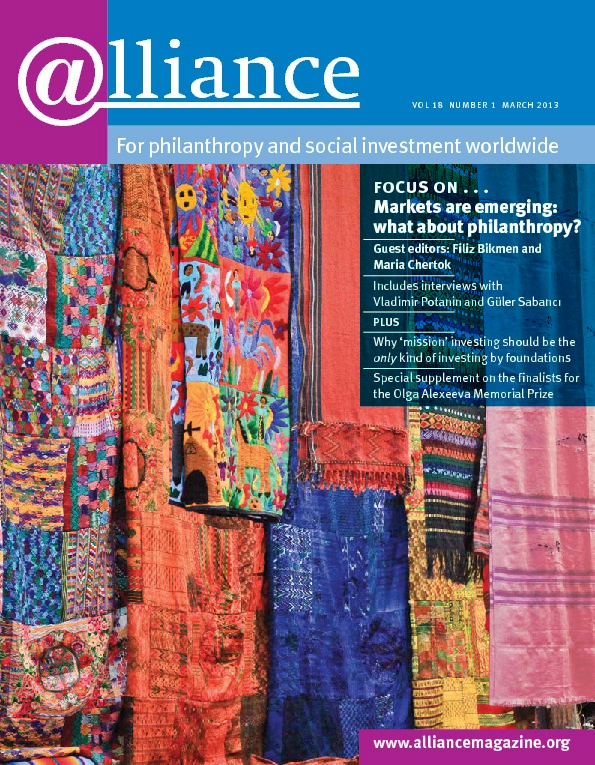The Russian Donors Forum (RDF) Annual Conference, held on 25 and 26 October last year, marked the organization’s 10th anniversary as a formally registered entity. The conference made evident that the RDF has come a long, long way from a small group of mostly outside funders in 2002 to a thriving association of over 40 diverse members and partners today. I was enthused by the vigour and depth of the discussions about Russian philanthropy.
Having been mainly on the North American philanthropic conference circuit, which tends to be very polite, for the past several years, I was struck by the ardour of the Russian speakers and audience. Often interventions were passionate, at times almost argumentative – though one Russian foundation executive commented to me that ‘this year seems to be tamer than in the past’. It was evident that people’s philanthropic work, whether with their own resources or as employees of a foundation, was deeply personal.
This was also the source of a grappling with more philosophical considerations such as motives, values and social responsibilities that ran through the conference. This year’s theme was ‘Philanthropy in Russia: Basic Vectors of Development’ – a kind of overview to mark the milestone of the RDF’s 10th anniversary. There were time-honoured topics that philanthropy struggles with practically everywhere such as philanthropy’s role in society, public awareness of philanthropy, charity versus philanthropy, or relations with government. Apropos the latter, a plenary on this topic included a senior official of the Russian Federation’s Ministry of Justice as well as the Minister of Open Government Affairs, billionaire and philanthropist Mikhail Abyzov. Both officials signalled the Russian government’s openness to partnering with philanthropy, despite some voiced scepticism from the audience.
On the practical front, a couple of sessions were devoted to endowments – a relatively new financial vehicle in Russia in which there is increasing interest. Another session, ‘Evolution of Donor Types’, examined shifts that are common in many other post-transition countries, such as the decline in external funding and the increasing role of local business, government and the middle class in supporting NGOs. One Russian panellist showed how Russia also reflects global trends: donors are becoming younger, more results-oriented, and more frequently deploying other forms of capital than just financial – human, intellectual, reputational, social, symbolic and data.
Two sessions on separate days had the same starting title: ‘“Popular” and “Unpopular” Philanthropy’. The first compared and contrasted funding culture and supporting human rights; the second, funding education and migrant/refugee assistance. These keenly reflected the Russian context where nascent local philanthropy generally still stays away from the more controversial areas, although the question of philanthropy sticking to ‘safe’ areas rather than those that are more contentious is certainly seen around the world. The conference showed that Russian philanthropy is evolving. It is multi-faceted and with common themes and unique aspects that can enrich the development of global philanthropy.
Nick Deychakiwsky is a programme officer at the C S Mott Foundation. Email nick@mott.org






Comments (0)